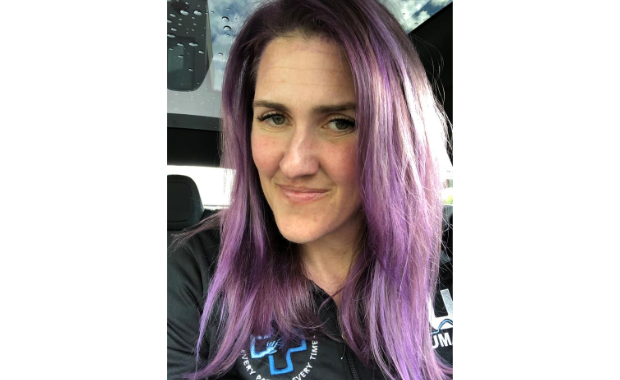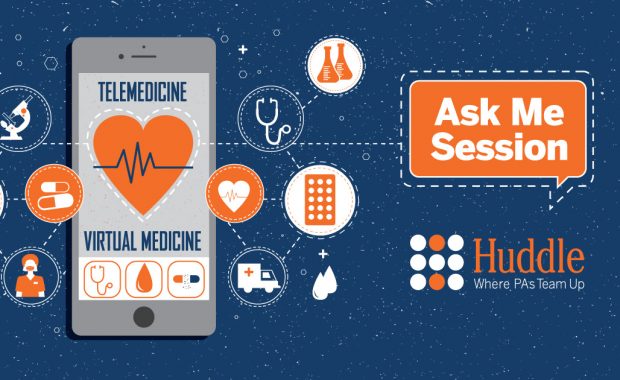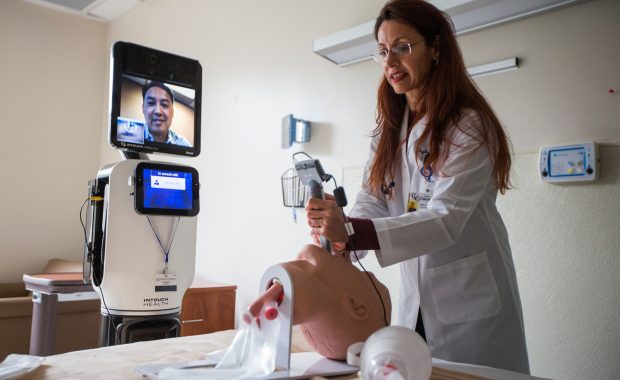Career Resources
Approach to limiting bias for patients with Mental Health and Substance Use Disorders
Stigma and bias can lead to poor patient outcomes for people who have mental health and substance use disorders. So, what can providers do to help patients and limit their barriers to receiving good care? Find out how you can help mitigate bias and stigma in the healthcare setting.
Putting Bias Aside
It is essential that providers can connect with patients, recognize signs of mental health and substance use disorders, and holistically approach the treatment of these patients. In this article, you will learn how bias and stigma affect health outcomes for patients with mental illness and substance use disorders, and identify some of the different types of bias and stigma that may affect the care that healthcare providers give to their patients.
Keys to a Thriving PA-Physician Team
The happiest PAs feel like they are part of a vital, mutually supportive team. Read on to learn the most common roots of dissatisfying team relationships and learn the PA Career Coach’s tips for cultivating and maintaining a strong relationship with the physicians on your team.
Building Collegial Connections
Relationships are the cornerstone of PA practice. PAs can promote positive connections with colleagues through trust, respect, communication, and clarity.
Continuing Medical Education (CME) Optimization
Make the most of your CME budget and learn how to tailor your clinical education to your individual learning style and needs.
Effective Patient Communication: Background, Benefits + Best Practices
This article is an overview of effective patient communication, from background to benefits to strategies and pitfalls that the clinician should know.

Here’s How Every PA Can Play a Role in Mental Healthcare
Megan Pinder, MMS, PA-C, is an advocate for psychiatric patients both personally and professionally. She responds to questions about PAs’ role in mental health, how access, socioeconomic status, and stigma impact patient mental health, and how to advocate for mental health patients.

Health Inequities: How PAs Can Help Bridge the Care Gap
The PA Foundation’s Vital Minds podcast featured a discussion on how health disparities have been exacerbated by COVID-19, the role socioeconomic factors and insurance may play in health disparities, and how PAs – and other allies – can help bridge the care gap.

Expert Advice on Providing Trans-Affirming Healthcare
AAPA invited PAs Lauren Eisenbeis and Jo Rolls to host Huddle’s latest Ask Me session on transgender healthcare. Eisenbeis and Rolls used their expertise from years of experience to provide advice and resources for PAs to provide trans-affirming healthcare to patients.

How PAs Can Provide Compassionate Care to Survivors of Interpersonal Violence
AAPA enlisted Katherine Thompson, PA-C, a practicing PA in emergency medicine and urgent care for four years, to respond to Huddle’s Ask Me on interpersonal violence (IPV) and forensic medicine. Read her advice on how healthcare providers can identify and manage IPV survivors.

Sponsored
How PAs with High PQ Enhance Patient Care
Every PA knows continuing to develop your people skills is critical to having the kind of influence you want to have on your patients and healthcare team members. You need a high interpersonal intelligence quotient, or PQ.

How to Be A Good PA Colleague
Every PA shows up to work ready to take the best care of their patients, and work towards the best patient outcomes. But each of us also contributes to our work environment. How we contribute defines us as a colleague.

Virtual Health PAs Share Insight to Rapidly Growing Healthcare Space
Huddle’s latest Ask Me session recruited virtual medicine PAs Desmond Watt and Amanda Shelley to engage in field-related discussions with AAPA members. Virtual health, or telemedicine, is an emerging healthcare space that PAs have the opportunity to not only join, but lead.

The Top 7 Things Every PA Should Know About Virtual Medicine and Telemedicine
What do virtual medicine, telehealth, telemedicine mean? And how might they affect you and your daily practice? Desmond Watt, PA-C, president of the PAs in Virtual Medicine and Telemedicine special interest group, shares what you should know.
Shared Medical Appointments
Tell any provider they need to see 12 patients in one hour, and the reaction will likely be a cringe, a shudder or even a chuckle. Most providers already operate […]

